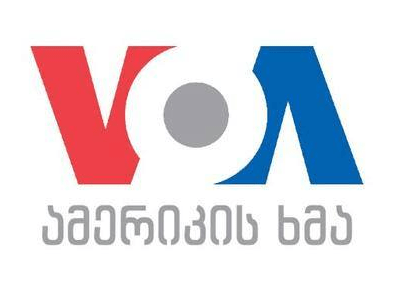Jonathan Katz: it is important that there is no violence ahead of the runoffs
Anna Kalandadze of Voice of America’s Georgian Service in Washington talked to Jonathan Katz, Senior Fellow at the German Marshal Fund of the United States to discuss the latest Georgian presidential elections and the upcoming second round.
First round of Presidential elections was marred by numerous violations and violence. Still, international observers deemed it professionally administered and valid that raises bar for Georgian democracy in the future. What is your evaluation and what lies ahead to consolidate its democratic achievements, if any?
Yes, there were violations that were recorded by domestic and international observers, but elections showed that there is a strong ability for political parties to compete, although competition, at times, is not fair and not leveled based on a lack of independent media and on challenges of the use of official resources. Election is only one measure of Georgia’s democracy, it had several elections in a row that were deemed sufficient. But what Georgia needs to keep on track on its Euro-Atlantic integration, is to keep implementing reforms – judicial and other – that are required by the European Union and are going to be needed to take Georgia on a Euro-Atlantic path. Georgia as a young democracy, faces a lot of similar challenges as other younger democracies. It is important not only for Georgia to move forward but for the United States, the EU and NATO, to support that transition and integration. It is essential, Georgia needs to do it, but partners need to be there to support the country.
What do you wish for the second round of presidential elections, and what needs to be done to avoid same mistakes?
It is important that there is no violence ahead of the second round. The government pledged that elections are free, fair, and transparent. Any act of violence is unacceptable. I have a great confidence in the government and in the people of Georgia in conducting elections so that true needs of the people are recognized. So I think unfortunate incidents of violence should be of concern to the government, to the people and to the civil society, but it is important for Georgia to spotlight on its second round that meets the international standards.
What role do you ascribe to the civil society for the country’s development in Georgia and what about recent threats against its leaders, and their work?
Georgia’s political scene is vibrant, there are multiparty voices weighing in on Georgia’s future, as well as polling numbers showing Georgians want to see the Euro-Atlantic future come to a fruition, and see progress, but they also see other issues like in other countries – the economic issues. Also, Russia had its role in the current discourse in Georgia. Also in the country a civil society should be seen as a partner and should not be seeing threats and challenges as we saw there during last couple of weeks.These were concerning for those, following Georgia, and to those – who have looked at the importance and strength of the civil society for Georgia’s integration and progress.
The results highlighted the two-way polarization and radical differences in the public. How can voters proceed in the period leading up to the next round?
Presidential power has been further limited in Georgia. I think the candidates represented different political factions and where it is going. Having women in leadership position is critical everywhere, but Georgians should be deciding whom to elect. International community should urge the government that there is a level playing field, and it is still a challenge in Georgia based on media, based on the access to resources to run a campaign, and I hope we are going to see a second round that all Georgians can be proud of and that international community will get behind.
What is the responsibility of the government and the civil society in setting the tone that will be underlying the process?
The role of the government is important in setting free, fair, transparent conditions in the pre-election as well as in the post-election period to ensure that Georgians move forward. Government, having a constitutional majority has to act responsibly, has to straighten and engage opposition, and civil society without which it will be impossible for Georgia to move on a Euro-Atlantic track, bringing together the Georgian people. To exclude civil society will not be positive for Georgia, but will actually harm it.
 Partner Post
Partner PostThis material was prepared for Civil.ge by the Voice of America. In order to license this and other content free of charge, please contact Adam Gartner.
This post is also available in: ქართული (Georgian) Русский (Russian)